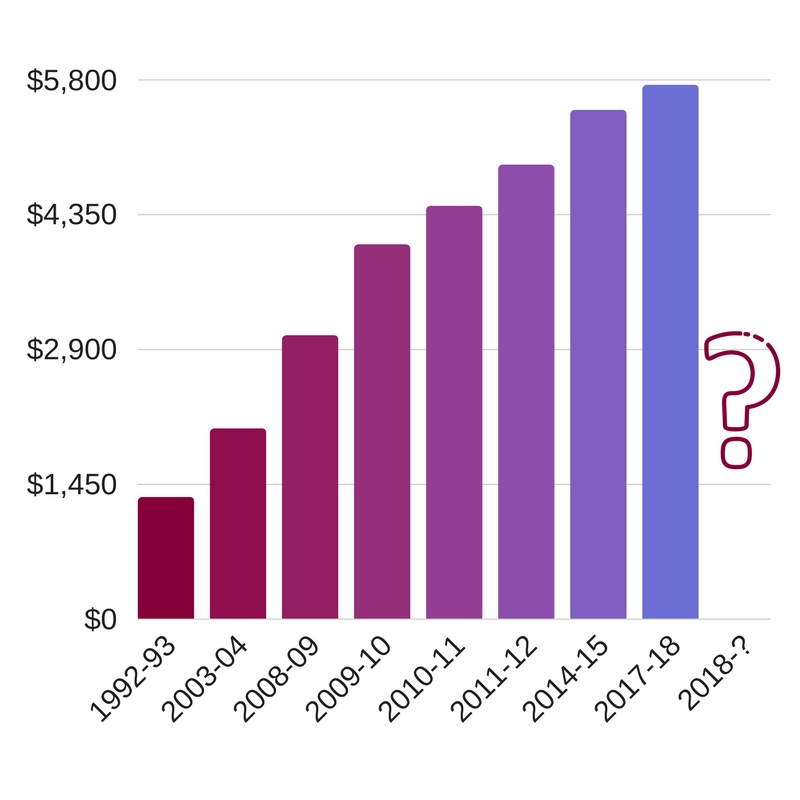Tuition for the CSU system has increased by about 339 percent since 1992.
Update: Feb. 25, 12:48 am: The article did not match what was written in print and was fixed.
By Stacey Lockett and Maria Villa
Staff Writer
Less than a year after its first tuition increase in five years, California State University is considering another hike to cover lack of funding.
For the 2017-18 academic year, tuition increased 5 percent, raising the cost of annual resident undergraduate tuition to $5,742 (not including campus-based fees of $1,090). The changes currently discussed for 2018-19 would raise tuition fees for full-time resident undergraduates to $5,970, $3,462 for part-time students, and $7,608 for graduate students.
The CSU Board of Trustees met Tuesday, Jan. 31 in Long Beach to discuss the possible increase, which the CSU says is needed to make up for the lack of necessary funds in the 2018-2019 state budget, and to help accommodate more students and ensure they graduate within four years. No decision was made at the meeting Jan. 31. The next time the Board will discuss it will be in May.
According to the CSU official website, “over the last 2 1/2 decades, state support per student for the CSU has declined while enrollment demands have dramatically increased.” During the board meeting, it was reported that, based on California Gov. Jerry Brown’s current 2018-2019 budget, the CSU expects to get $92.1 million of the $263 million it says it needs for additional funding.
Dr. Kirti Sawhney Celly, marketing professor, vice-chair of the California State University, Dominguez Hills Academic Senate, and steering committee member for the California Faculty Association, the statewide union of CSU instructors, is not happy with any proposed tuition increase.
“I think it is wrong to increase the CSU tuition once again,” said Celly. “We have the greatest proportion of students who are first-generation, older, working class, poor and have significant financial burdens. Why make it harder for students to obtain the basic education necessary for employment and upward mobility?”
Celly said while it was a “positive” that the board postponed its vote until May because it gives the CFA and CSU time to work together and lobby state lawmakers to increase funding for the CSU, she also expressed concerns that a May vote will come at a time when students and faculty may not be as attuned to the issue.
“Making a decision after the academic year is also problematic because students and faculty may not be around in person to encourage the board not to authorize another tuition hike,” Celly said.
For students like Claudia Echeverria, a liberal arts major, this change could affect her in more ways than one.
“I live two hours away from my university and I spend $62 a week to put gas in my car,” said Echeverria. “I have to eat too and having to pay more for my education will leave me with no money to eat.”
Photo by Bria Overs.

